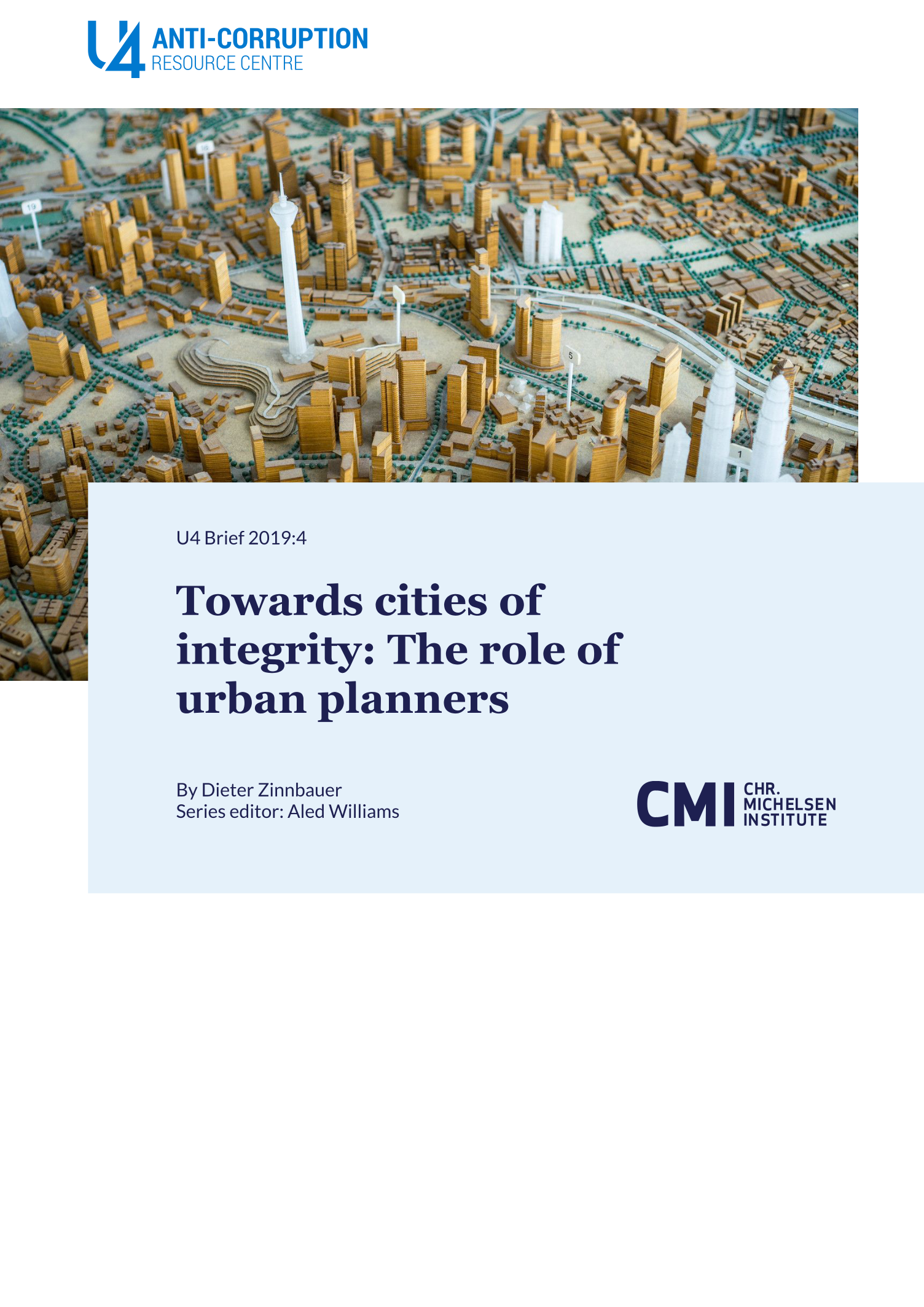Main points
- Corruption risks in urbanisation threaten to stymie ambitions for a prosperous, inclusive, resilient urban future;
- Decisions around zoning, land management, infrastructure and service build-out offer some of the most sophisticated, inscrutable and lucrative ways for personal enrichment, crony capitalism, clientelism and political patronage;
- Corrupted urban planning and development deprives rapidly growing cities of urgently needed resources to expand services and upgrade infrastructures.; in the long run corruption threatens to hardwire unjust economic, social and political relations into the fabric of cities;
- A potentially potent, source of urban integrity has received little attention to date: The professional urban planning community.


